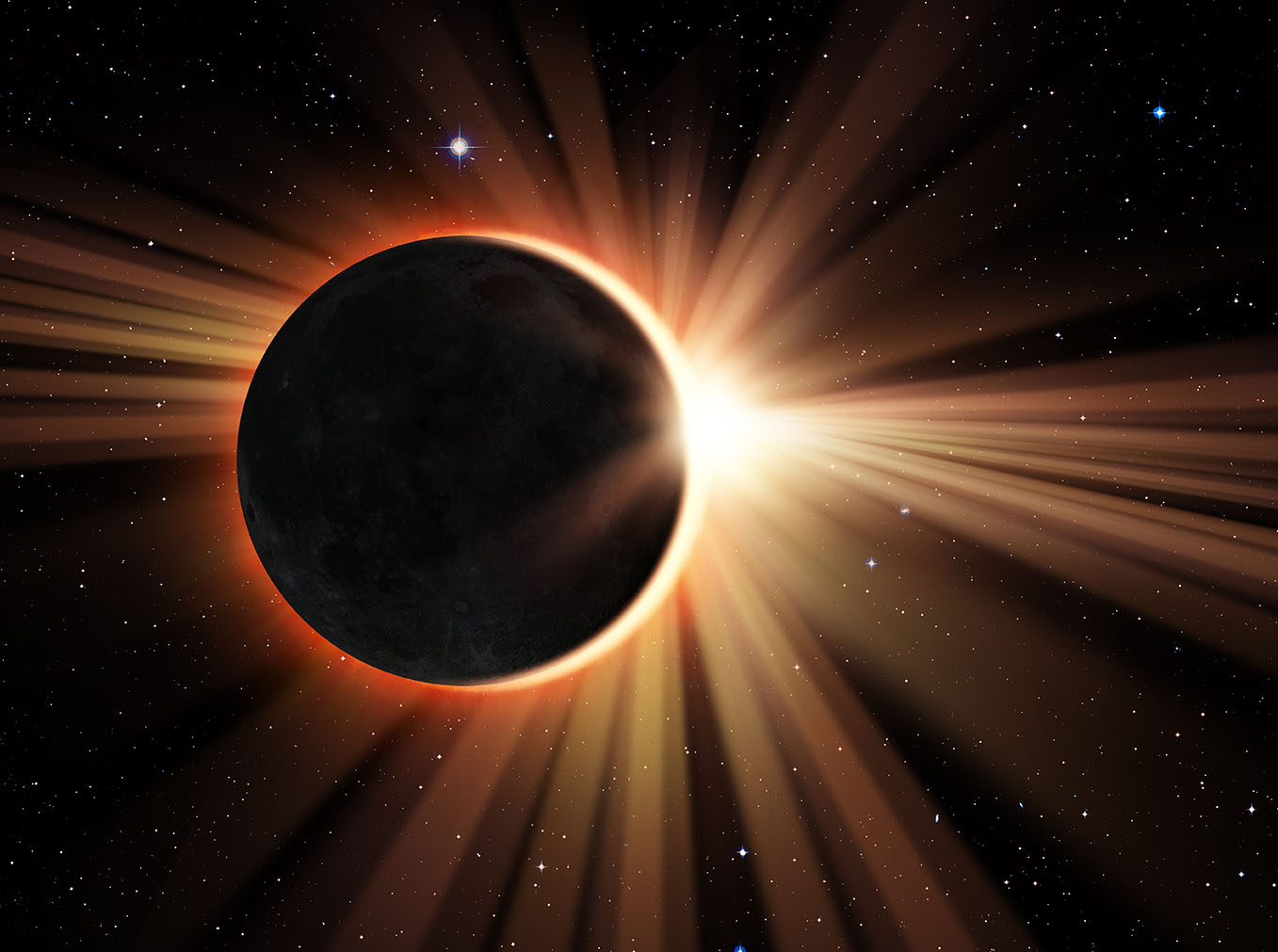
< Back
eclipse
Definition
An eclipse is an astronomical event that occurs when one celestial body blocks the light from another celestial body. There are two main types of eclipses: solar eclipses and lunar eclipses.
Solar eclipses occur when the moon passes between the sun and Earth. The moon casts a shadow on Earth, and this blocks the sun's light. Solar eclipses can only happen at new moon, when the moon is in line with the sun and Earth.
Lunar eclipses occur when the Earth passes between the sun and the moon. The Earth casts a shadow on the moon, and this blocks the sun's light. Lunar eclipses can only happen at full moon, when the moon is in line with the sun and Earth.
Eclipses are a rare event, and they can only happen when the three celestial bodies are perfectly aligned. Solar eclipses are more rare than lunar eclipses, because the moon is much smaller than the sun.
How can the word be used?
The moon's shadow will eclipse the sun today.

Different forms of the word
Noun: eclipse, occultation, obscuration.
Verb: to eclipse, occult, obscure.
Adjective: eclipsing, occulting, obscuring.
Synonym: obnubilate, obscure, darken.
Antonym: illuminate, brighten, lighten.
Etymology
The word "eclipse" comes from the Latin word eclipsis, which means "occultation". It is made up of the two Latin words e (out) and clipsis (occultation).
Question
Have you ever seen an eclipse? Describe what was ti like.
AQA Science Exam Question and Answer
Question:
Explain the phenomenon of a solar eclipse and a lunar eclipse, highlighting the differences between the two. Describe the conditions that lead to each type of eclipse and their significance in our understanding of celestial events. Provide examples of when and where eclipses are visible and the precautions to be taken when observing them.
Answer:
- A solar eclipse occurs when the Moon passes between the Earth and the Sun, blocking the Sun's light and casting a shadow on the Earth. In contrast, a lunar eclipse happens when the Earth comes between the Sun and the Moon, causing the Earth's shadow to fall on the Moon, giving it a reddish hue, known as a "blood moon".
- Solar eclipses are relatively rare and can only be observed from specific regions on Earth. Lunar eclipses, on the other hand, are visible from anywhere on Earth where the Moon is above the horizon.
- Eclipses provide valuable insights into celestial mechanics and planetary motions. They help scientists understand the sizes, distances, and orbits of celestial bodies in our solar system.
- When observing eclipses, it is essential to take precautions to protect one's eyes from the intense sunlight. Never look directly at the Sun during a solar eclipse without proper solar filters or viewing glasses. For lunar eclipses, no special equipment is needed, and they can be safely observed with the naked eye.
- Eclipses are fascinating and awe-inspiring celestial events that captivate both scientists and the general public, offering unique opportunities to learn more about the wonders of our solar system.